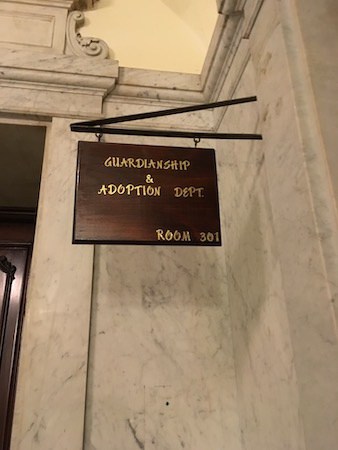How Can I Tell if it is Time to Start a Guardianship for an Elderly Person?
There may come a time when an elderly loved one can no longer manage their own affairs such as paying bills, banking, managing investments and taking care of their day-to-day living needs. If your relative has been diagnosed with a serious illness, has suffered a stroke, is disabled or has dementia or Alzheimer’s and is showing signs of memory loss, confusion and forgetfulness, it may be time to establish a guardianship for your relative. Since the New York guardianship laws are complex, the expertise of a New York guardianship, probate and estate attorney is required.

Establishing a Guardianship and Appointing an Guardian
Under New York law, there are two major types of guardianships. The most widely used type of guardianship for elderly persons who have suffered a brain injury, brain disease such as dementia and who are mentally or physically incapacitated is a guardianship under MHL Article 81. New York law requires that the guardian be at least 18 years of age or older and also a legal resident or U.S. citizens. Typically, a guardian of an elderly person is usually an immediate adult family member such as a son, daughter, grandchild, niece, nephew or sibling.
However, the New York Surrogate’s Court also has the jurisdiction to appoint a qualified non-related person to act as guardian where there is no immediately family member available. A guardian can be appointed as both the guardian of the person and the property or there can be two separate guardians appointed, one as guardian of the person, and one as guardian of the property. For instance, a son or daughter may be appointed as guardian of the person, but a financial advisor such as a CPA or accountant or legal advisor such as a lawyer may be appointed guardian of the property.
Guardianship Duties
The guardian of the person takes care of the person’s living needs, such as grooming, bathing, meals, house cleaning, grocery shopping and healthcare needs, including medical, dental and nursing, transportation and any other personal day-to-day needs. The guardian of the property takes care of paying bills, banking, property management, collecting rents, managing the person’s business and financial accounts, filing income tax returns, obtaining government benefits such as social security, VA, Medicaid, SSI or Medicare and any other government benefits. Here is more about responsibilities of a guardian.
Determining when to establish a guardianship is a family decision. The legalities and requirements of establishing a guardianship should be discussed with an experienced New York probate and estate attorney. The attorney can prepare and file the required documents with the court and attend court hearings as well as assist with any tax matters.
If you wish to speak to a New York guardianship attorney, call the Law Offices of Albert Goodwin at (212) 233-1233.













